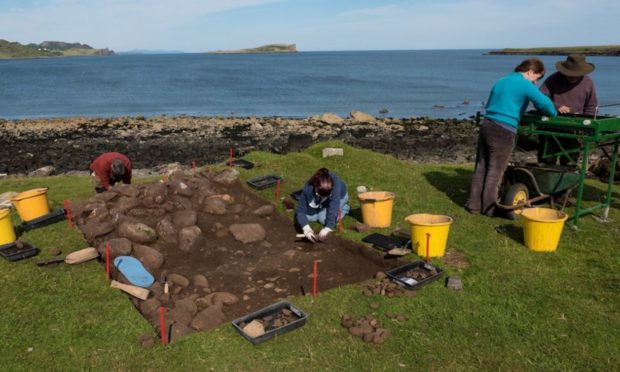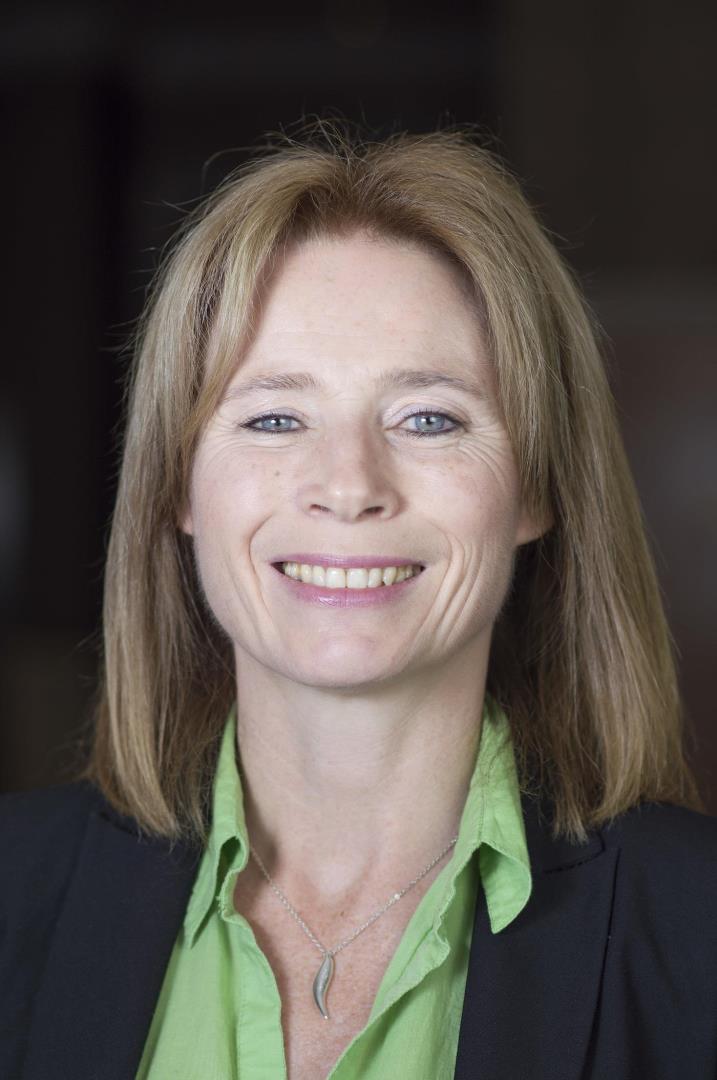The importance of the University of the Highlands and Islands to the north economy “can’t be overstated” according to local business chiefs.
The establishment supports the region socially and economically, helping to sustain local populations and bringing new students to the area.
As it marks the tenth anniversary of achieving university status, its achievements and future plans are being reflected upon.
Strengthening skills and expertise
Here Morven Cameron, head of universities, education and skills at Highlands and Islands Enterprise, looks at the role the University of the Highlands and Islands has played in the area’s development.
She said: “You can’t overstate the importance of universities to the region’s economy.
“They attract and retain talent, particularly young people.
“They strengthen skills and expertise across the workforce, which helps attract inward investors.
“They employ people directly and indirectly, and they invest in capital and infrastructure.”
She added: “In the Highlands and islands, the university sector is vital to numerous joint venture innovation and research and development projects that habitually lead to new commercial enterprises linked to the region’s specific characteristics.
“This makes for more resilient communities, particularly important in rural areas, and improves prosperity.
“For these reasons, as regional development agency, our close association with the University of the Highlands and Islands dates back to its candidate status in the 1990s, the growth of its 13 colleges and research centres and its 70 rural learning centres, through its giant strides to university status in 2011.
“Our unique strategic partnership remains as strong as ever and the tenth anniversary of that important milestone is certainly something to celebrate.
“It’s a good time to reflect on the difference the university has made in providing for the regional population and attracting students from elsewhere. It draws on the wealth of experience of local culture and geography that exists across the university’s college network.
“We’ve seen new teaching and research in outdoor adventure, golf, psychology, digital health and computer science, as well as the transfer into the region of nursing and midwifery programmes.
“We’ve seen niche provision expand in areas such as sustainable rural development, Gaelic, archaeology, aquaculture and Nordic studies.
“We’ve seen growing numbers of students take part in, for example, the marine science degree at the Scottish Association for Marine Science (SAMS) in Argyll, and in the outdoor adventure programme at West Highland College UHI in Fort William.
“Let’s also remember the lure of archaeology in the Northern Isles. Many remain in the region after graduating, going on to support growing industries or start new companies of their own.
“And this is only the start. The University of the Highlands and Islands is instrumental in providing the knowledge, education and skills required for the further development of the region’s economy.
“The many years’ experience the organisation has in using technology to deliver remote learning, paid unexpected dividends in 2020. As organisations closed while they adapted to a global pandemic, the University of the Highlands and Islands easily shifted to online learning.
‘This will change the makeup of our economy’
“Together, we had invested in the School of Health, which created 15 research posts: a good example of the synergy between science/academia and economic development.
“This scientific and research capacity is now being applied in national efforts, with the university leading a project to help NHS employees cope with the impacts of Covid-19.
“Looking beyond the emergency, we’re seeing significant growth in manufacturing, life sciences, marine technologies, aerospace and engineering industries. This will change the makeup of our economy.
“The university has a crucial role in responding to such opportunities, providing education and research options linked to these industries and strengthening the workforce.
“It is involved in more than 10 regional growth deal projects, alongside HIE and other partners, including the Life Sciences Innovation Centre in Inverness and Highland.
“Other growth deal proposals in the pipeline include the SAMS international research and development centre in Argyll, campuses in Stornoway and Shetland, and the aerospace and advanced technology innovation centre in Moray.
Greater ability to ‘grow our own’ in professions such as health and social care will be equally important.”
“These initiatives create high quality jobs and contribute massively to economic prosperity in all parts of the region.
“I know the university plans to build on its progress. While attitudes among young people towards the region appear to be increasingly positive, more than 2,500 people still graduate elsewhere every year.
“Many rural communities are particularly concerned about retaining young people. The University of the Highlands and Islands incentives for those who want to stay in the region, continue to be vital.
“Greater ability to ‘grow our own’ in professions such as health and social care will be equally important.
“We certainly look forward to continuing our long-standing partnership with the university on these challenges, for the benefit of social and economic prosperity throughout the region for many years to come.”
University’s expertise helping green air services project take off
The University of the Highlands and Islands is the only academic partner on a project examining greener ways to fly in the future.
Highlands and Islands Airports Limited (HIAL) has launched a £3.7 million project to develop a sustainable aviation programme which will create the UK’s first operationally-based, low-carbon aviation test centre at Kirkwall Airport.
Part funded by UK Research and Innovation (UKRI) through the Industrial Strategy Challenge Fund, the SATE (Sustainable Aviation Test Environment) project will test different types of low-carbon aircraft to identify new types of air services and the support infrastructure needed.
The type of next generation transport being tested includes using electric, hydrogen or Sustainable Aviation Fuels (SAF) to replace conventional fossil fuels, as well as drones to supply medical supplies.
The university is part of the SATE consortium of aviation industry specialists, local businesses, public sector bodies and academia.
North Highland College UHI in Thurso will be looking at skills and the supply chain necessary to support the new technology. Its environmental research institute will also investigate the socio-economic impact of low-carbon aviation.
Orkney College UHI will be addressing hydrogen safety in an airport environment, while Professor Andrew Rae, director of the centre for advanced engineering at Perth College UHI and professor of engineering across the university network, will be assessing the implications for aircraft design, certification and operation, and the possible role of policy and legislation.
He said the university will be providing much of the “road-mapping” elements of the project.
Prof Rae said: “The new types of aircraft will all require changes to current regulation and certification processes, most of which are looked after by the Civil Aviation Authority, who are engaging with the project through their innovation function.
“The results of the various flight trials happening within the project will inform the changes necessary to accommodate aircraft with alternative fuels and operations while maintaining the necessary levels of safety.
“The same is true of the ground operations, such as maintenance and refuelling.
“Within this latter activity, staff at Orkney College UHI will be bringing their expertise in hydrogen safety, gained through experience in the maritime sector, to airport operations alongside conventional fuels.
“These new types of aeroplanes will need new and different skills to operate them, as well as alternative supply chains and logistic operations.
“An evaluation of these aspects will be performed by staff at North Highland College UHI, to identify a road map of how training and education might need to change to provide these new skills, and understanding how other sectors might support the need for alternative components and technologies.
“The new skills and infrastructure required by these new aeroplanes will alter the mix of jobs and ancillary industrial support compared with traditional operations, and the socio-economic impact of these in remote and rural locations will be investigated by staff at North Highland College UHI’s Environmental Research Institute.”
Prof Rae was involved in the design of The Phoenix aircraft which gained international recognition in 2019.


